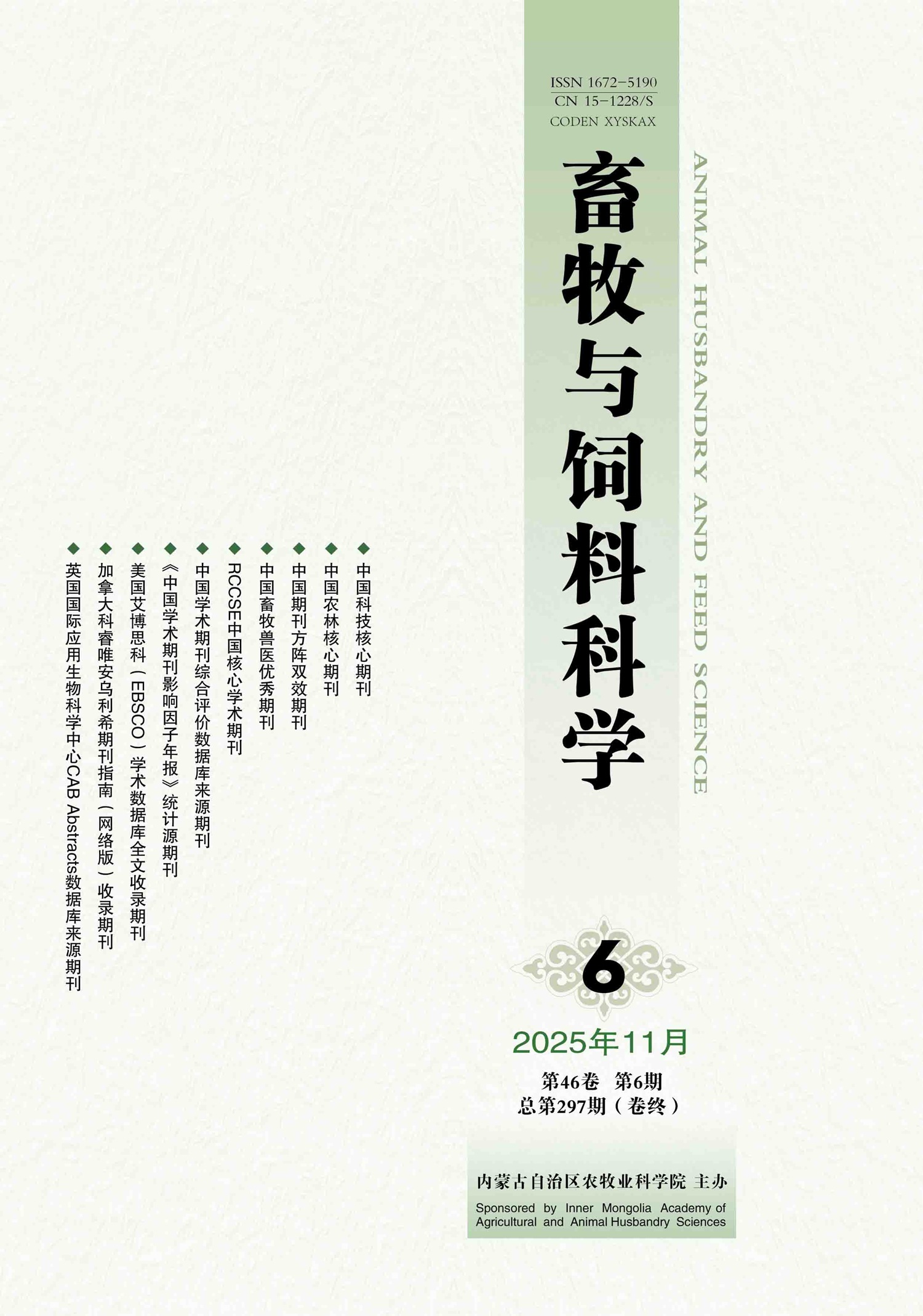Table of Content
News

(Published monthly,Science 1973)
Responsible Unit:Inner Mongolia Department of Agriculture and Animal Husbandry
Sponsor Unit:Inner Mongolia Academy of Agricultural and Animal Husbandry Sciences
International standard serial number:ISSN 1672-5190
Domestic unified serial number:CN 15-1228/S
CODEN XYSKAX
Domestic postal distributing code:16-101
Responsible Unit:Inner Mongolia Department of Agriculture and Animal Husbandry
Sponsor Unit:Inner Mongolia Academy of Agricultural and Animal Husbandry Sciences
International standard serial number:ISSN 1672-5190
Domestic unified serial number:CN 15-1228/S
CODEN XYSKAX
Domestic postal distributing code:16-101

《畜牧与饲料科学》微信公众号

超星学习通站点





